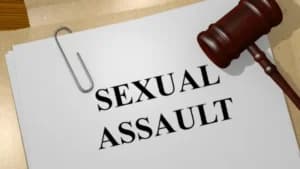In a packed courtroom at the Patna High Court on Tuesday, Justice Arun Kumar Jha delivered a detailed and rather candid judgment that set aside the Special PMLA Court's order taking cognizance against a Kolkata-based businessman. The issue may sound technical at first glance, but inside the courtroom it felt anything but arguments ran for hours, with both sides repeatedly circling back to the same question: Can a court take cognizance without first giving the accused a chance to be heard under the new BNSS?
“The bench observed, ‘If the statute says something must be done in a particular way, then it must be done in that way or not at all’,” capturing the tone of the ruling that followed.
Background
The case began in March 2024 when the Enforcement Directorate (ED) registered an ECIR linked to alleged disproportionate assets amassed by a senior public servant and his associates. While the petitioner was not named in the initial FIRs or even the ECIR, he was later arrested in October 2024 during the probe.
The ED eventually filed a main prosecution complaint in December 2024 and two supplementary complaints in early January 2025. On 8 January 2025, the Special PMLA Court took cognizance against several accused, including this petitioner.
What changed the landscape was the coming into force of the Bhartiya Nagarik Suraksha Sanhita (BNSS) on 1 July 2024. A particular provision Section 223, requiring a pre-cognizance hearing became the pivot of the challenge.
Court’s Observations
Justice Jha noted that the entire prosecution complaint process happened after BNSS came into effect. Therefore, its safeguards were not optional.
The court rejected the ED’s argument that no prejudice had been caused or that earlier interrogations under Section 50 of PMLA were sufficient. The judge stressed that the right to be heard before cognizance is a statutory mandate, not something courts may casually treat as a minor irregularity.
“The bench observed, ‘There cannot be two laws one before interpretation by the Supreme Court and another after. The law is what the Supreme Court declares it to be.’”
The court also cited the Supreme Court’s judgment in Kushal Kumar Agrawal, which clarified that Magistrates must grant an opportunity to the accused before taking cognizance on a complaint under the BNSS regime.
Importantly, the High Court rejected the ED’s argument that the requirement applied only prospectively or that the Special Court had acted in good faith based on earlier practice. Good faith, the judge said, cannot override an explicit statutory prohibition.
In one of the more striking lines, the judgment stated:
“No amount of opportunity during investigation can cure the absence of an opportunity that the statute expressly mandates at the stage of cognizance.”
Decision
In the end, Justice Jha set aside the PMLA Special Court’s order dated 8 January 2025. The case has been remanded back to the Special Judge, who must now reconsider whether to take cognizance only after hearing the accused, as required under Section 223 of the BNSS.
The High Court was careful to clarify that it expressed no opinion on the merits of the allegations its intervention was strictly on the procedural illegality.
With that, the matter returns to the Special Court, where the accused is now entitled to argue perhaps for the first time why cognizance should not be taken.
And with that, the High Court wrapped up what was clearly a closely watched hearing, especially among criminal law practitioners navigating the BNSS transition.
Case Title:- Pushpraj Bajaj v. Union of India
Case No.: Criminal Revision No. 685 of 2025













